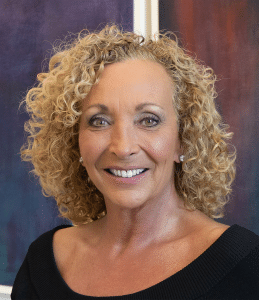
Menarche and menopause represent two of the most significant physiological events that occur in a woman’s life, due to their profound impacts on reproductive health, hormonal balance, and overall well-being. Menarche marks the onset of menstruation and natural reproductive capability, while menopause ends them.
These stages of a woman’s life are inevitable, but their onset and associated symptoms vary widely, especially concerning menopause. While most women confidently agree that the average age of menarche is 12 or 13, many are less sure about the average age of menopause. As a later stage in life, some women may not prioritize learning about menopause in their younger years. Additionally, menopause has historically been less openly discussed due to stigma, cultural taboos, and its association with aging.
With long-term expertise in women’s health, Naples, Florida-based internal medicine specialist Dr. Diane Brzezinski notes that the average age of menopause is 51, with most women experiencing the 12-month cessation of their menstrual cycles between the ages of 45 and 55. Dr. B adds that menopause comes in stages with variable durations, and its onset can occur sooner than expected; some patients may experience early signs of menopause as soon as 35. Thus, let’s further examine the average age of menopause, its early signs, and how women should navigate this inevitable transition in life.
What Is Menopause, Exactly?
Menopause is the end of a woman’s ability to reproduce children, as marked by the cessation of their menstrual periods. While the medical field defines menopause as having occurred after 12 months without a period, women experience related physiological and hormonal changes well before and after their menstrual periods completely stop. For this reason, health professionals generally characterize menopause as a three-stage process consisting of:
- Perimenopause—this first stage emerges due to age-related declines in estrogen and progesterone, which often causes irregular menstrual cycles and other symptoms.
- Menopause—the severity of perimenopausal symptoms tends to increase during the 12-month cessation of the menstrual cycle, and new ones often emerge.
- Postmenopause—hormonal imbalances can continue to cause distressing symptoms, and exceptionally low hormone levels may lead to additional menopause-related symptoms.
What Is the Average Age of Menopause?
As noted, the average age of menopause in the U.S. is 51, but timing its onset is challenging. Most women begin experiencing perimenopause in their mid to late 40s. On average, this stage lasts about 8-10 years, though the duration can range from a few months to up to 10 years or longer based on ethnic background. During this time, fertility may still be in play, so women need to keep this in mind as they enter their menopausal transition.
The healthcare field characterizes menopause that occurs between the ages of 40 and 45 as “early,” and menopause as “premature” if it occurs before 40. Early menopause, which is not considered abnormal, can be caused by genetics, smoking, specific medical conditions, or treatments. Women entering early menopause may want to consult with a doctor to manage hormone levels and symptoms.
Premature menopause is considered a medical issue called “premature ovarian insufficiency” or “primary ovarian failure.” Autoimmune disorders can cause it; specific genetic conditions like Turner Syndrome or Fragile X Syndrome; and chemotherapy, radiation, and ovarian surgery. Women who experience premature menopause should be under the medical supervision of a doctor.
Signs You May Be Approaching Menopause
A menstrual cycle that becomes persistently inconsistent is generally a clear sign that perimenopause has arrived. Other signs that you may be approaching menopause include:
- Hot flashes
- Night sweats
- Insomnia
- Mood swings
- Vaginal discomfort and dryness
- Urinary issues
These symptoms typically become more severe when monthly menstruation stops, which can also bring on additional symptoms like headaches, brain fog, weight gain, hair loss, and emotional distress.
Dr. B’s partner physician, Dr. Michael Hellman, says, “While these symptoms are natural, there’s no reason why a woman experiencing them shouldn’t seek medical advice on how to ease their discomfort. From lifestyle changes to hormone replacement therapy, we have proven ways of effectively helping women alleviate their menopause-related symptoms.”
Why It’s Important to Recognize the Signs Early
With timely recognition of the onset of your menopausal journey, you can proactively manage associated symptoms, maintain your quality of life, and ensure that hormonal changes and unmanaged symptoms don’t give rise to other health issues. Along with potential impacts to sexual and mental health, the hormonal changes that occur with menopause can negatively impact the health of a woman’s bones, joints, metabolism, and cardiovascular health.
How Dr. B Helps Women Navigate Menopause with Confidence
Dr. B, Dr. Hellman and Kelly Fennemore, APRN have established a stellar record of helping women successfully navigate their menopause symptoms in Naples. Their individualized, holistic approach is designed to help manage symptoms while ensuring optimal, long-term overall health. They use personalized hormone testing to help them strategize each patient’s hormone replacement therapy to ease symptoms and prevent associated healthcare impacts effectively. To further restore hormone balance and optimize bodily function, they provide lifestyle guidance and nutritional supplements. And when menopause compromises a patient’s sexual and vaginal health, they offer her the revitalizing O-Shot® and Laser Vaginal Therapy.
When to See a Doctor About Menopause Symptoms
Dr. B and Dr. Hellman stand ready to help Naples-area patients alleviate their menopausal symptoms at any time during their transitional journey. However, while not an emergency, you should always consult with a doctor about your menopausal symptoms if:
- You are under 45.
- Your periods have changed dramatically.
- You’re experiencing significant anxiety, depression, or sexual dysfunction.
- You’re looking for options to feel like yourself again.
Knowing the average age of menopause helps women feel empowered, not surprised. If you’re approaching your 40s or noticing subtle shifts in your menstrual periods, Dr. B’s Naples clinic is here to support you with clarity, compassion, and expert care.
Ready to take control of your wellness? Contact Dr. B’s office today at (239) 261-9990 to schedule a consultation.




